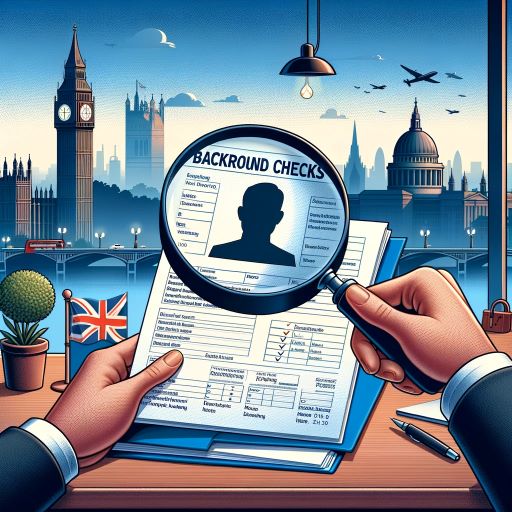

Additionally, Security Check (SC) and Counter-Terrorist Check (CTC) clearances offer access to more classified data than BPSS, making them essential for roles with heightened security requirements.
Continuous monitoring and updating of BPSS clearance are recommended for roles that involve ongoing security concerns. This proactive approach ensures that any changes in an employee's background that could affect their security status are promptly addressed, maintaining the integrity of sensitive environments and protecting national interests.
2. BPSS form **Automation and Digital Platforms:** Look out for the adoption of automation and digital tools to streamline the BPSS clearance process, enhancing efficiency.
These challenges underscore the importance of thorough and meticulous verification processes to uphold the integrity and effectiveness of the BPSS screening.
The process of obtaining BPSS clearance includes a detailed review of the applicant's identity documents, such as passports or driver's licenses. This step is vital to confirm that the individual is who they claim to be, which is fundamental in preventing identity fraud within high-security environments. Proper identification is the cornerstone of the BPSS clearance process and helps maintain the integrity of the workforce within protected sectors.
For positions within the UK government and its contractors, BPSS clearance is not just a formal requirement but a critical security measure. It ensures that individuals handling classified information or involved in security-sensitive activities are appropriately vetted and continuously monitored throughout their employment.
- Any connections or affiliations established overseas should be clearly communicated.
Your legal right to work in the UK is an essential aspect of BPSS clearance. One key consideration in this process is the disclosure of any unspent criminal records. Unspent criminal records refer to offenses that haven't yet been spent under the Rehabilitation of Offenders Act 1974. These records play an important role in the BPSS clearance process as they're thoroughly evaluated during background checks.
The integration of digital technologies has streamlined the BPSS clearance process, making it more efficient and less prone to errors. Digital solutions allow for the rapid processing of checks and secure storage of sensitive data, enhancing the overall security and efficiency of the vetting process.
The timeline for conducting these checks also differs.
2. Renewal is required after the 3-year period to maintain access to government assets.
In some cases, BPSS checks can encounter delays if discrepancies or issues need to be resolved, such as gaps in employment or discrepancies in personal information. Such issues require additional investigation and possibly further documentation, which can prolong the process.


While the typical duration for a BPSS check ranges from two weeks to a month, it's important for both employers and candidates to be prepared for variations based on the factors discussed. Employers should manage expectations and provide candidates with as much information as possible about what to expect during the BPSS clearance process to ensure a smooth and efficient vetting experience.
4. Renewal involves re-verifying right to work, identity, criminal records, and employment history.
BPSS checks involve several key components: identity verification, employment history check, criminal record check, and nationality and immigration status check. Each of these areas is carefully examined to ensure that the individual does not pose a security risk.
AI and machine learning are increasingly being integrated into the BPSS process, enabling predictive analytics to assess risks associated with certain profiles or patterns. This proactive approach helps organizations preempt potential security risks before they become problematic by analyzing trends and behaviors gleaned from past BPSS checks.
Applicants need to provide documents like a passport or driver's license to confirm their identity. Right to Work Confirmation: Legal documentation proving the right to work in the UK, such as a passport or Home Office document, is required. Criminal Records Check: Verification of any unspent criminal records is crucial for evaluating suitability for BPSS clearance. Employment History Validation A minimum of three years of employment history must be provided to complete the recruitment process.
3. **Continuous Monitoring:** Anticipate standard practices of continuous monitoring and periodic re-screening to uphold BPSS compliance over time.
Fraud prevention
Employment history verification is a critical part of the BPSS check and can extend its duration. This process involves reaching out to past employers to confirm periods of employment, roles held, and reasons for leaving, which can take time if past employers are slow to respond or if the candidate has worked internationally.
Enhanced technological advancements are shaping the future landscape of BPSS compliance, offering quicker and more accurate identity verification processes. As the industry evolves, here are some key aspects to ponder:
1. **Verify Right to Work:** Check the individual's legal right to work status in the country.
Lacking BPSS Clearance could restrict access to certain roles and delay or prevent employment in positions requiring security clearance.
There is typically no cost for individuals as it is often covered by the employing organization.
BPSS Clearance is required to ensure that individuals are properly vetted before employment in sensitive or secure areas.